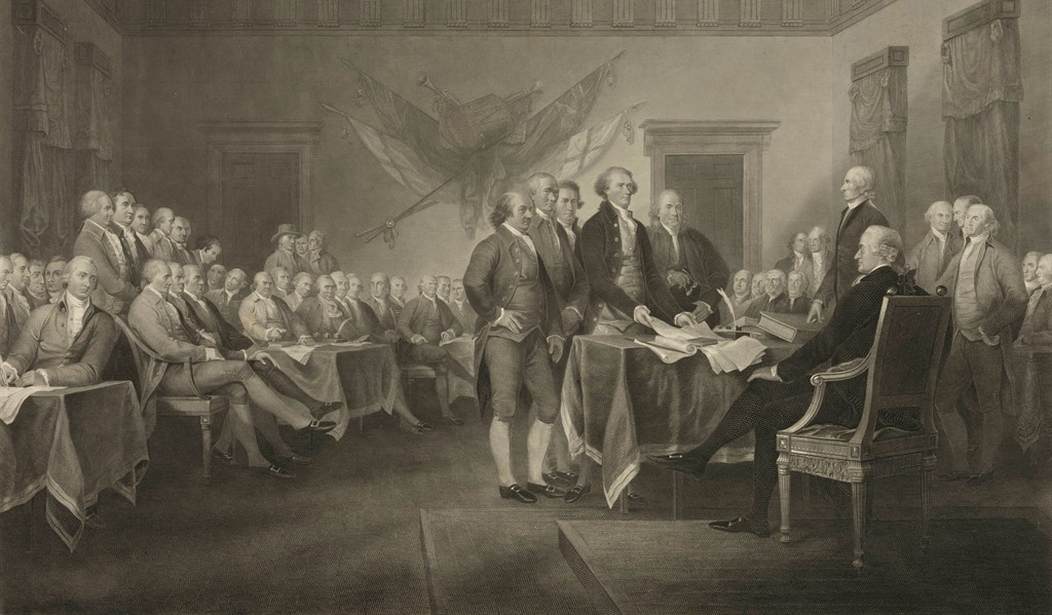On July 2, 1776, the world changed forever. The Second Continental Congress voted to formally sever ties with the British Empire. America was officially born.
On that day, John Adams wrote the following to his wife, Abigail: “The second day of July, 1776 will be the most memorable epoch in the history of America. I am apt to believe that it will be celebrated by succeeding generations as the great anniversary festival. It ought to be commemorated as the day of deliverance, by solemn acts of devotion to God Almighty. It ought to be solemnized with pomp and parade, with shows, games, sports, guns, bells, bonfires, and illuminations, from one end of this continent to the other, from this time forward forever more.”
Although the vote to declare independence actually occurred on July 2, 1776, the Declaration of Independence was signed and dated July 4, 1776. Hence, our nation’s “official birthday” has been celebrated on the fourth of July for the past 243 years.
So, as we begin to celebrate America’s 244th birthday, perhaps we should reflect on the history of the American experiment. As the nation is experiencing turmoil and mobs are destroying the statues and reputations of our Founding Fathers, perhaps we should begin with those earliest of years of America’s infancy.
On December 23, 1776, Thomas Paine penned The Crisis, beginning with these ominous words: “These are the times that try men’s souls.” At this point, the Continental Army, a ragtag bunch going up against the greatest military machine in the world, stood little chance. Yet, despite overwhelming odds, these patriots put their differences aside and fought through thick and thin. Almost miraculously, the undermanned and underequipped American Army eventually defeated the mighty British Empire.
Shortly after victory in the Revolutionary War, the fledgling nation encountered more “trying times.” From the robust debate over the formation of the new government and the difficult process to ratify the Constitution, our nation could not have come together without compromise.
After heated debates between the Federalists and Anti-Federalists, cooperation and conciliation triumphed. Throughout the early years, as our nation expanded and fulfilled what some believed to be its Manifest Destiny, compromise was integral.
Recommended
Sadly, there have been times when compromise has not triumphed over partisanship and ideology. The battle over ending slavery, which led to the Civil War and 600,000 dead Americans, is the ultimate example of rigid beliefs (and racism) overcoming commonsense and morality. However, one must not forget, or ignore, that hundreds of thousands of white men gave their lives to the abolition of human bondage in America.
In the years since the awful Civil War, America has had its share of ups and downs. From economic turmoil to social discord, the problems that have plagued America have run the gamut. However, compromise and reasonable solutions have almost always won the day.
Of course, America is not perfect. The United States, although founded on individual liberty, has not always lived up to its founding ideals. Yet, if history teaches us anything (and it should), we have addressed and corrected these societal ills via cooperation and understanding. And we will continue to do so. That is how we have built a more perfect union.
In other words, America has become better through public discourse and agreement, and we should celebrate this aspect of our history.
And yet, in 2020, one could make the argument that we are in the midst of “trying times” once again. Our nation is divided along many lines, and compromise seems less likely with every passing day.
Some groups have taken to the streets, destroying America’s sacred statues. This does not heal historical wounds; it adds salt. Instead of toppling landmarks and statues of men such as Thomas Jefferson, George Washington, U.S. Grant, Abraham Lincoln, etc., we should be looking back at the trials and tribulations that these men (and women) led us through.
The Fourth of July is supposed to be a time of celebration, not demolition. I hope, and I could be naïve about this, that the vast majority of Americans will reconsider the unruly nature of our current social and political environment.
Maybe, just maybe, we can all put our differences aside for one day and celebrate America’s 244th “great anniversary festival.” After all, who knows how many more of these celebrations we can expect in the decades to come.

























Join the conversation as a VIP Member